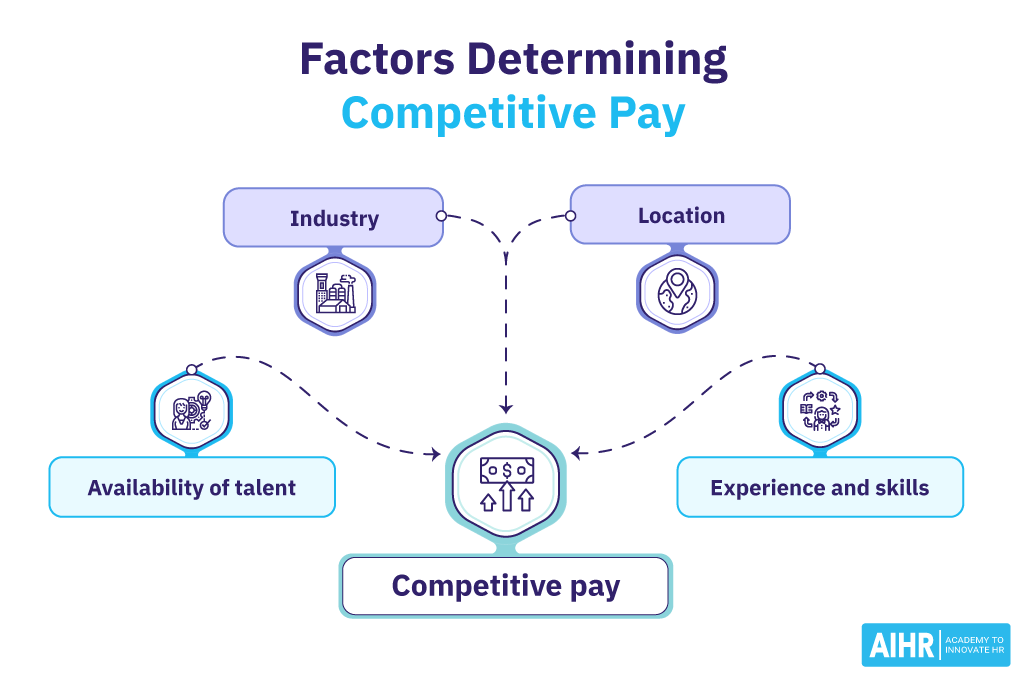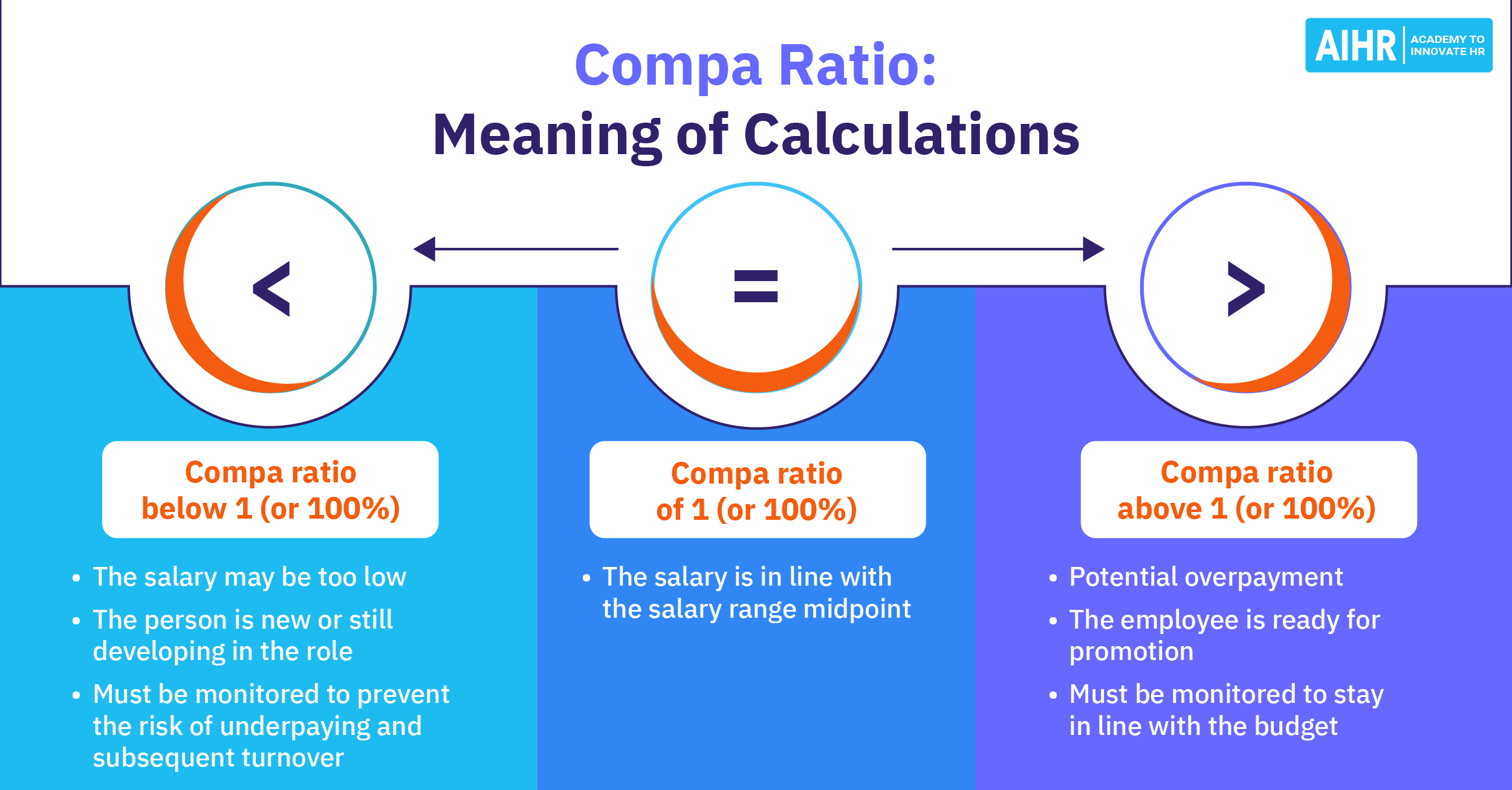Competitive Pay
What is competitive pay?
Competitive pay is the total compensation package awarded to an employee with a value equal to or greater than the market offering for a similar position in an industry and geographical area.
“Competitive” indicates that employers are offering compensation better in relation to other companies to secure high-performing employees. This is a term often seen in job listings. Offering competitive pay also allows for more room to negotiate with highly qualified candidates during the recruitment process.
What affects competitive pay?
- Availability of talent: In areas where there is a lower supply of talent with high demand, this increases the value of candidates/employees. In this instance, an employee may likely be paid higher than average.
- Geographic area: Where your company is based will reflect the availability of talent and the level of pay. Two individuals working the same job may earn different salaries in different locations.
- Industry: Certain industries and professionals are likely to receive more competitive pay depending on the industry demand. For certain positions and the economics of the said industry, that may allow for increased pay.

What does competitive pay include?
Competitive pay is a comprehensive remuneration approach – meaning it includes not only an employee’s salary but also other benefits. A competitive compensation package can include:
- Health insurance
- Dental and vision insurance
- Disability coverage
- Paid vacation leave
- Retirement plan
- Company perks (e.g., company car or housing)
- Variable pay – (e.g., commissions or bonuses)
- Work-life balance benefits (remote work, flexibility)
Why is it important to offer competitive pay?
- Reducing employee turnover as there is a feeling of fair remuneration
- Reducing time and money spent on recruitment (due to less turnover)
- Positioning your company as an employer of choice
- Attracting the best talent
- Providing room for negotiating to get the best talent
- Keeping salaries competitive over the long term.
How do you determine competitive pay?
In order to determine competitive pay, a few components need to be in place:
- The organization’s compensation philosophy: How employees are rewarded and what constitutes the compensation package.
- Job analysis: All jobs need to be collected, collated, and categorized accordingly.
- Job families: Jobs need to be correctly classified in their respective job families aligned to external benchmarks.
- Pay grades: Each job family needs a pay grade to be determined.
You can use these job grades and salary ranges to determine if an employee is paid competitively. Based on the compensation philosophy, a midpoint for a salary range needs to be created. You can also use the compa ratio to determine if an employee is paid competitively.








